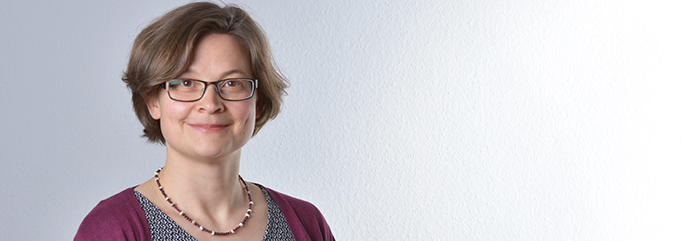
Hello and Welcome! Thank you for taking an interest in my work.
Our most recent publications:
Nature 599, 368-371 (2021),Lipphardt/Surdu/Ellebrecht/Pfaffelhuber/Wienroth/Rappold: “Europe’s Roma people are vulnerable to poor practice in genetics“; https://doi.org/10.1038/d41586-021-03416-3
Genes 12 (12): 1868: Wienroth / Granja / Lipphardt / Nsiah Amoako / McCartney (2021) Ethics as Lived Practice. Anticipatory Capacity and Ethical Decision-Making in Forensic Genetics
our work was covered in:
New York Times: https://www.nytimes.com/2021/11/17/science/genetics-ethics-roma.html
My recent research has focused on genetics and society. If you are interested in my latest preprints and publications, you may take a look at my researchgate page.
I thrive in interdisciplinary research teams and environments, and I am happy to have found the perfect environment and many great colleagues to work with at University of Freiburg.
My teaching is about knowledge, knowing, knowers, and science. I draw on approaches from sociology, history, anthropology and philosophy, and, a little bit, psychology. Currently I am focussed on developing a modularized blended course offer for people who are new in academia, or new in Germany, or new in both.
I am also the initiator of the upcoming OLA, the Open Learning Area for Science Reflection, Science Studies and Science Comunication (see menue above).
I teach at the University College Freiburg, in the Liberal Arts and Sciences BA program, and in various departments and programs around the university. I invite students of all programs to attend my courses – often I can offer some free spots – just ask.
Note: I am not the director of the UCF; formally, this is the vice president for teaching. The UCF team is waiting for the arrival of a new philosophy of science professor before structural decisions can be taken.
I have studied history, biology, musicology, and social sciences in Vienna, Potsdam, Berlin, and Freiburg. After finishing my MA equivalent in 2000 (history/biology), I gained working experiences in several academic institutions, including the International Center for Ethics in the Sciences (Tübingen). In 2006, I took my PhD in History of Science at Humboldt University, Berlin. In 2008, I published a book about German-Jewish physical anthropologists and geneticists and how they contributed to the scientific debate about the so-called “Jewish race” between 1900 and 1935.
When I started my academic career, I worked on the history of the life sciences in the 20th century, particularly history of physical anthropology and human population genetics, in their political, social and cultural contexts. Later, I moved to perspectives onto population genetics today. Since some years, I am writing a book on human population genetics in the second half of the 20th century (Working Title: Narratives of Isolation, Patterns of Diversity. Human Population Genetics, 1950s-2000s).
From 2006 to 2009, I was a researcher in the BMBF-funded Collaborative Research Projct “Imagined Europeans. The Scientific Construction of Homo Europaeus” at Humboldt University Berlin, studying life scientists’ imaginations of the “European” from the 18th century until today.
From 2009-2015, I was director of an Independent Research Group at the Max Planck Institute for the History of Science, focusing on ‘Histories of knowledge about human variation in the 20th century’. Simultaneously, from 2011-2015, I also was Professor at the Free University, Berlin (Wissensgeschichte; Geschichte der Lebenswissenschaften).
Research areas and topics
Population Genetics in the 21st century, “Genetic History”, Forensic Genetics, Genetics and Vulnerable Populations, History of the Life Sciences, History of Physical Anthropology, Human Population Genetics, Science & Technology Studies, History, Sociology and Anthropology of Knowlegde
Research projects
My current research tackles Genetic History and Population Genetics today. There are two projects related to this:
- Forensic DNA analysis, in particular of biogeographical ancestry
- Genetic studies on vulnerable populations, in particular Roma
Furthermore, I am also interested in the role of narratives and interpretations in the life sciences, in narratives of economic growth in public and academic discourses, in the relationship between academia and the media, as well as in responsibility in academia.
Activities
I have co-founded the multidisciplinary initiative “Wissenschaftliche Initiative zu Erweiterten DNA-Analysen“.
As an elected member of Die Junge Akademie (2010-2015), I have co-initiated the “Dialog Plattform Vereinbarkeit von Wissenschaft und Familie“.
Since 2018, I am Member of the Board of Trustees of “Stiftung Deutsches Hygiene-Museum”.
Publications
A list of publications can be downloaded here.
Contact
Prof. Dr. Veronika Lipphardt
Room 01026
Tel. +49 (0)761 203-4415
Email: veronika.lipphardt@ucf.uni-freiburg.de; students who need a recommendation letter or guidance on teaching matters please always cc Silvia Stösser: silvia.stoesser@ucf.uni-freiburg.de
Office hours
Summer Semester 2022
(starting on 11.05.2022)
Wednesdays: 12:00 – 13:00
Please register in advance (per e-mail) with Silvia Stößer: silvia.stoesser@ucf.uni-freiburg.de
Office / Sekretariat
Silvia Stösser
Room 01031a
Tel. +49 (0)761 203-67628
silvia.stoesser@ucf.uni-freiburg.de
office-sts@ucf.uni-freiburg.de